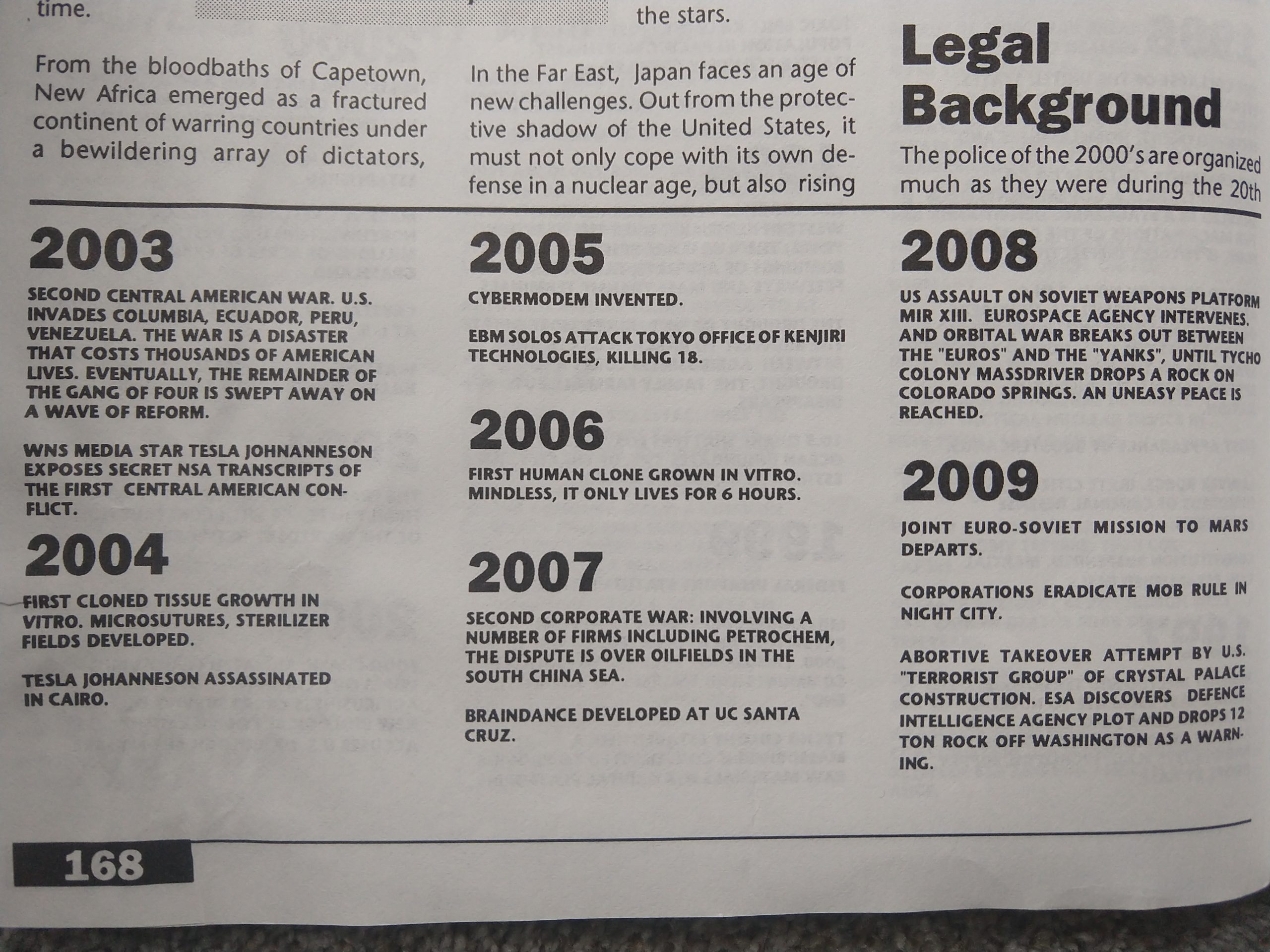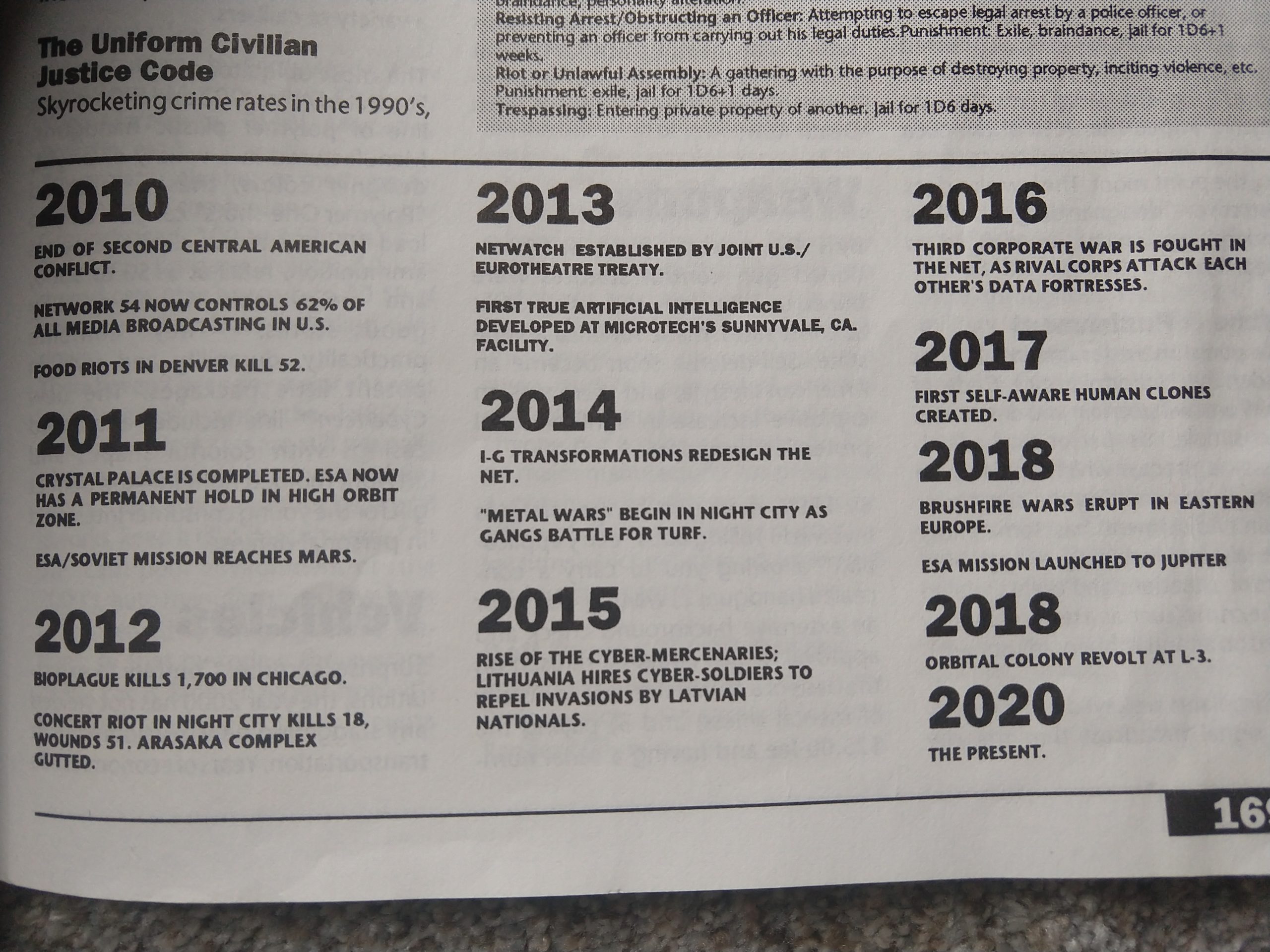 Most people know that Cyberpunk 2077 is based on the Cyberpunk 2020 RPG. I still have my old copy, and I decided to take a look to compare how the last 30 years actually went vs how they would have to go to get us to the neon & chrome cyberpunk future.
Most people know that Cyberpunk 2077 is based on the Cyberpunk 2020 RPG. I still have my old copy, and I decided to take a look to compare how the last 30 years actually went vs how they would have to go to get us to the neon & chrome cyberpunk future.
To the left – the cover.
To the right – what Johnny Silverhand looked like before he was Keanu Reeves.
Before we begin, one interesting note about the present’s view of the future —
The copyright of Cyberpunk 2020 is 1990/1991. That means it was considered plausible for this setting to be 30 years in our future. Cyberpunk 2077 came out in 2020, putting the plausible window for the setting 57 years into our future. That’s nearly twice as long. This means people are more pessimistic about the speed of technological improvement, and estimate that we’re progressing at HALF the rate we used to! Quite a change in the zeitgeist.
However it also means people are more optimistic about the rate of civilizational collapse, and think it’ll take us twice as long to get to Night City. Seeing as the cyberpunk genre was born before the 1990s rennasaince, when everything seemed to be spiraling, this isn’t surprising (the collapse of the USA was slated for 1996, just 6 years out from publication!). And since CP2077 was born in Trump America, this means that even in Trump America people on average didn’t feel as anxious about everything coming apart at the seams.
Anyway, on to the Timeline!
1990-1995 highlights:
First Arcology built in 1991
EU established in 1992
New York gets nuked in 1993

1996-2002 highlights:
Collapse of USA in 1996
Middle East destroyed in full nuclear exchange 1997
Plague kills 100s of thousands in US/Europe 2000

2003-2009 highlights:
Orbital war in 2008, Colorado Springs is wiped out
2010-2020 highlights:
Humans on Mars in 2011
First true AI in 2013
Human cloning in 2017
Orbital colony revolt in 2018


“This means people are more pessimistic about the speed of technological improvement, and estimate that we’re progressing at HALF the rate we used to! Quite a change in the zeitgeist.”
Interesting thought! I hadn’t considered that.